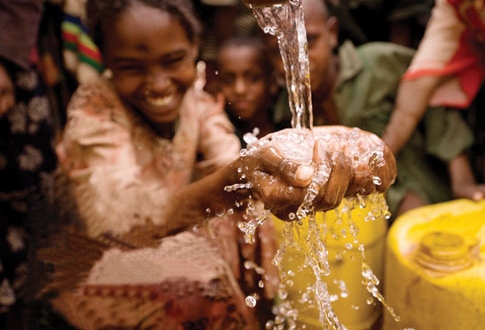
The United Nations General Assembly in July 2010 adopted a non-binding resolution proclaiming water as a human right. The resolution was approved by 122 countries, overwhelmingly from the developing world. Another 41 countries, mostly developed, constituted the main block that abstained. No country voted against the resolution.
Unlike other human rights, right to water was not decided by any specific convention like rights to food or health. It is a new form of right that is derived from several other existing conventions like the International Covenant on Economic, Social and Cultural Rights (1966), Convention on elimination on all forms of discrimination against women (1977) and Convention on the rights of the child (1989). It has been evident from the political atmosphere of the past two decades that expanding human rights to new areas through conventions is unlikely to succeed since minimum number of countries needed to ratify such a convention is unlikely to materialize in foreseeable political climate. Hence, the concept of human right to water was in sense introduced through the backdoor, irrespective of its need or merit. Eminent international legal scholars disagree as to whether such derived rights can truly constitute a new human right.
UN Resolution on Water Resource Management
The General Assembly resolution acknowledged that clean drinking water and sanitation are essential to realize several other human rights. It called upon all countries and international organizations to provide financial resources; help build capacity and transfer technology to developing countries to provide clean, accessible and affordable drinking water and sanitation to all. India voted for the resolution.
We would explore here what difference this UN resolution is likely to make to the Indian scene to provide clean drinking water and good sanitation to all its citizens. In India, water is a concurrent subject being dealt with by both central and state governments. The Indian vote at the General Assembly was cast without any consultation with the states and municipal bodies who are responsible for most of the urban water supplies about their implications, responsibilities and accountabilities to live up to the resolution, including the difficult issue of who will provide the funding necessary for its implementation. From our discussions in various states and municipalities, overwhelming majority of them are not even aware of the UN resolution that declared water is a human right, let alone what could be their roles in implementing this resolution. No national strategy thus far has been formulated to operationalize this resolution, nor is there any sign that such a strategy will be forthcoming in the near future.






